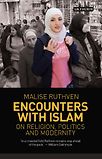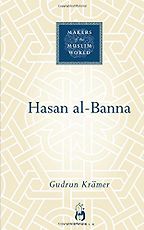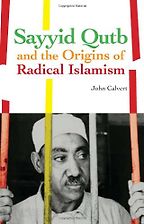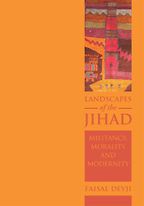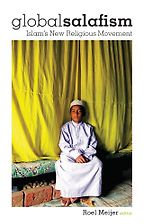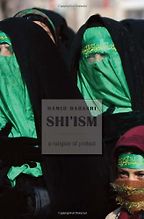The theme of this interview is Islamism, but would it be more appropriate to refer to Islamisms, given the many diverse Islamic traditions that exist today?
Absolutely. Any idea that Islamism is a monolithic ideology is defeated by the data. And of course the bottom line on that is the lack of a central authority and institutions in Islam. You haven’t got a pope – no one takes what [the historical centre of Sunni Muslim scholarship in Egypt] Al-Azhar says seriously any more. What you have are lots of competing hierarchies. So when we talk of Islam, it’s very far from monolithic and that also applies to the political versions of it too.
This tendency for diffusion and decentralisation has been accelerated by the rise to literacy – particularly in the Arab world – of postcolonial, educated individuals who feel they can have equal access to the religious texts. In the past – rather like in pre-Reformation Europe – access to texts was confined to a trained elite of scholars. So the traditional authority of scholarship had been progressively eroded and what you have had over the last 100 years or so is the rather chaotic situation with self-appointed autodidacts like Abul Ala Maududi in Pakistan and Sayyid Qutb and Hasan al-Banna in Egypt rising to prominence on the basis of writings and teachings which do not have the formal discipline that the old ulama [Islamic scholars] had in the past.
Would it be fair to say that Islam is becoming increasingly fractured and splintered and less coherent as a single religion?
Yes, I think it is becoming very fragmented and splintered. At the same time there is an impulse towards theological unity or tawhid, but to some extent that impulse is honoured in the breach. When you actually look at the Muslim world you see a fantastic diversification and diversity of interpretation. One of the problems with this is that, although Islam has legitimacy as a kind of spiritual force in the Muslim world, the fragmentation of authority has been the main reason that authoritarian regimes have succeeded in imposing their very secular, usually military, type of authority on societies.
“Any idea that Islamism is a monolithic ideology is defeated by the data”
One of the fundamental difficulties is that in the Muslim tradition you haven’t got the kind of corporate structures that you had in the West. Sharia [Islamic law] doesn’t acknowledge the legal personality of groups and tends to appeal essentially to individual conscience and piety. This is a strength in some respects but it does make for a lack of corporate cohesion. If you look at the Western Christian tradition, you see that when the church’s hegemony weakened, the disciplined organisations it had created, for example in the monastic orders, were inherited by national bodies such as cities and corporations able to challenge and resist the power of the rulers. This has meant that in the West the long retreat from religion – a universal aspect of modernisation – occurred in a more orderly way than is happening in the Islamic world at the present time.
Shrouding oneself in the cloak of Islam is often an effective way for the politically ambitious to secure power, isn’t it, especially as competing political ideologies have become discredited?
It’s certainly true that the religious discourse which is sanctified by tradition is manipulated, but the problem is that nobody really has a complete monopoly on the power to manipulate it. Indeed, if you look at some less politically effective religious groups in Egypt, like the Salafists, much of their discourse is consumed with internal bickering about points of detail in the interpretation of religious texts. Yet, at the same time, they will deny that they are into interpretation – they will claim that they simply take the text of the Quran and the Hadith [traditions] as being self-explanatory. But of course anyone who has ever wrestled with the Quran and the Hadith knows perfectly well that it is open to multiple interpretations and that is what gives religious discourses their power – people can find within those texts different manifestations of what they see as being the word of God.
Your first book is about Hasan al-Banna, who founded the Muslim Brotherhood. Can you tell us more about him and why you chose this particular biography?
Hasan al-Banna is a very significant figure because the Muslim Brotherhood is the most important political force in Egypt today and possibly the Middle East. It’s very timely to choose Gudrun Kraemer’s biography because of the election of Mohamed Morsi in Egypt and all the consequences that are flowing from that epoch-making event.
A biography of a key figure is a good way into the subject, because there is so much abstract writing about Islamism and the Muslim Brotherhood. Hasan al-Banna is really a primal figure. He was a schoolteacher who founded the Muslim Brotherhood in 1928 and was assassinated in 1949 by the old monarchist regime that was eventually overthrown in the Egyptian revolution of 1952.
Can you tell us more about his thinking and what beliefs the Muslim Brotherhood espouse?
I think Gudrun Kraemer is a very careful and diligent scholar and is able to locate Al-Banna in the context of his time. He grew up in Ismailia, the city where the European functionaries of the Suez Canal operated and where foreigners enjoyed a far richer lifestyle than local Egyptians. This is where much of the resentment that you can see in his discourse came from. He was disgusted at the licentious immorality that he saw or that he interpreted from the behaviour of Europeans. In some of his tracts, he denounces the Europeans for bringing their half-naked women into Egypt and corrupting the morals of the local population. This was the kind of discourse that feeds into the psyche of Islamism throughout the region, so he’s an important figure there.
He’s also something of a hybrid. He was a political activist but he also adopted the organisation of a Sufi tariqa, with its hierarchical progression into spiritual knowledge. This, in an Egyptian context, was a very powerful and effective combination.
“He is the first prime mover, certainly in the Sunni world, in the process of the ideologisation of Islam.”
At the same time, I don’t think Kraemer is particularly enamoured of Al-Banna. She describes him as a somewhat pettifogging type. As a young boy he denounced fellow Egyptians who weren’t observing Ramadan properly. According to the Quran you have to enjoin the good and repress the evil. Repressing the evil can mean denouncing your neighbours who aren’t observing the fast of Ramadan. There is something very pettifogging and mean-spirited there and that comes out in quite a gentle way in her biography.
The key to the Muslim Brotherhood’s success is down to the organisation and institution-building that Al-Banna undertook. He created a movement that was able to prosper after his death.
Absolutely, and this kind of institutionalisation has always been to some extent a problem in Islam. He succeeded in setting up a very effective and powerful institution. At the same time, as Kraemer points out, there was an ambiguity about his political objectives. In the 1930s and 1940s, Egypt was in transition from a political system based on patron-client relationships of the old parties like the Wafd, to a system shaped by a more ideological vision and mass mobilisation. He captured that transition. Perhaps, like all successful politicians, he had an intuitive feel for what was happening. He was therefore able to promote Islam as a new ideological vision. He is the first prime mover, certainly in the Sunni world, in the process of the ideologisation of Islam.
The Egyptian, Sayyid Qutb, was an essayist and novelist before establishing himself as a religious figure who is often admired by Islamist militants today. Please tell us more about John Calvert’s treatment of this contentious figure.
This book represents the best kind of scholarship. Calvert doesn’t just focus on the details of Qutb’s life, but is able to place him in the much broader context of the intellectual world he grew up in. The reason I chose this in conjunction with Gudrun Kraemer’s book is that the contrast between Qutb and Al-Banna is a very important one. Hasan al-Banna wasn’t in any real sense an intellectual – in fact Gudrun Kraemer describes him as “anti-intellectual” – whereas Qutb was a really significant literary figure, a novelist and essayist who was initially inspired by a lot of Western literature. He then had this Damascene conversion to Islam, an experience which has been replicated by young, Western-educated intellectuals who have come after him.
Get the weekly Five Books newsletter
In that flip-over into religion, a lot of material tends to appear that isn’t authentically Islamic and doesn’t come from the Islamic tradition. In Qutb’s case, what we see is his reading of Western sources becoming fused with Islamic sources, although he of course claimed that his discourse was wholly, authentically Islamic.
What I like about Calvert’s book is the way that he captures that very cleverly and in a very readable format. I particularly like the way he contrasts the actual Qutb with the character of Qutb that appears in one of [the novelist] Naguib Mahfouz’s books. What comes across – although Calvert is quite cautious about drawing this conclusion – is that actually as an individual, the great martyr he became is intellectually inauthentic as compared to someone like Mahfouz and the liberal generation of writers to which Qutb initially belonged, who pursued truth in a much more total way. In Qutb you have an example of the corruption of thought by religion. In that sense he’s rather a Tolstoyan figure. When Tolstoy got religion, the quality of his writing declined and that’s very much what appears to happen with Qutb.
So Qutb is in some ways a much more substantial man than Hasan al-Banna. He’s not an organisation man, but he sets himself up as an icon. He becomes the great martyr when he’s executed by Nasser in 1966, and hence the inspiration for generations of young men who suffer from what might be described as cultural schizophrenia in terms of personal identity and intellectual outlook.
Did his religious writing come about as a result of his experiences of the British occupation in Egypt and his later treatment by the Nasser regime?
I think that’s part of it. But in his memoir, Qutb describes an encounter he had while he was in Colorado in the US, where he was sent by the Egyptian government on an educational mission for two years in 1948. He’s invited to a church event where the pastor turns down the lights and they play the big band tune “Baby It’s Cold Outside” and you have all these young people smooching. He disapproved of this. Calvert is a bit sceptical about Qutb’s account about this being a transformative moment and points out that he had previously written disapprovingly about what was going on in Cairo nightclubs. So to some extent he was transposing his Hasan al-Banna-like rejection of sexual mixing in Egypt to the United States.
There are other things that are very unattractive about Sayyid Qutb. He makes extremely rude remarks about jazz, which he claimed only pointed to the primitive backwardness of African Americans. His racist attitudes make him in some ways a very unattractive iconic figure.
One reviewer described Landscapes of the Jihad as “a brilliant long essay on the ethical underpinnings of modern jihad”. Tell us more.
This is a very challenging book and nuanced in its analysis, but I think it is the best book I have read on the subject of jihad. Jihad literally means struggle – the greater jihad is the struggle against evil and then you have lesser jihads that sometimes involve a just or holy war against an invader. All these ideas have been extrapolated by modern ideologues and taken forward. Where this book is really helpful is that it shows that today’s jihadist discourse is essentially a modern phenomenon. Although it draws on traditional language and ideas, its application is very much part of the contemporary world of references.
“He talks a lot about media reference and media uses and shows how the young generation of modern jihadis are very much kids who have grown up with Hollywood movies and that a lot of their references come from them.”
Devji says of the spectacular jihadi attacks, communiqués and beheadings that: “The jihadis’ world of reference is far more connected to the dreams and nightmares of the media than it is to any Islamic school of jurisprudence and political thought.” He talks a lot about media reference and media uses and shows how the young generation of modern jihadis are very much kids who have grown up with Hollywood movies and that a lot of their references come from them. He gives the example of the videos of atrocities that were made during the US occupation of Iraq – such as the beheading of Western hostages – and he makes the point that they deliberately depart from earlier forms of terrorist murder because it’s the media spectacle itself, rather than the death of the victim, that is of primary importance.
So he captures the way in which you have an unholy junction of medieval certainties with postmodern doubt – the two things are fused together. There is a sense that the jihadis can be said to be protesting too much – they are trying to convince themselves that what they are doing is meaningful.
Also he’s very perceptive and intelligent about the element of gesture politics in jihad. If you take 9/11 – and the book is very much an essay about 9/11 – he argues that it’s postmodern in the sense that it’s not really a terrorist attack directed for a specific purpose. It’s really a gesture or manifestation of rage. In my own book on the subject I called it a “fury for God”.
I believe he describes it as an advertisement.
Yes, a huge advertisement. I was very struck by that. The way in which 9/11 has become an icon of anti-Americanism in all types of different cultural contexts is also very interesting and I think Faisal Devji picks up on that in a very nuanced and sophisticated way.
He says that Osama Bin Laden transformed jihad from a collective to an individual responsibility. It could be argued that this, paradoxically, illustrates the absorption of the Western liberal idea of individualism by militant jihadis.
I do think there is an element of individualism there, and in the case of suicide missions, elements of narcissism. I think this is a characteristic of the modern development of jihad. I take the view that modernity is universal and you can’t really buck it, although people think that they can. A lot of the trends that seem to be emerging in opposition to aspects of modernity, such as greater individual autonomy, contain – rather paradoxically – a great deal of individual self-expression. That to some extent makes them less menacing than people imagine.
Five Books interviews are expensive to produce. If you're enjoying this interview, please support us by donating a small amount.
The war on terror was hopelessly misplaced because the education of the generation of people in power in Washington DC had been built on the Cold War conflict with the Soviet Union and they simply transposed a centralist model of jihadism from communism to Islamism. It was a complete misunderstanding of the nature of the threat. This is not to say that there isn’t a terrorist threat. But if one, for instance, took the view that terrorist activities are the outcome not so much of organised political movements but of the displaced narcissistic aspirations of disgruntled individuals, you would have different strategies for dealing with them.
Could you briefly tell us what Salafism is?
The idea of Salafism comes from the iconic reputation of [the prophet] Mohammed’s companions known as the as-Salaf as-Saleh – the righteous companions of the prophet. Salafists are predominantly traditionalists who see themselves as honouring the prophet and his companions by replicating the behaviour of that first iconic generation of Muslim believers.
Salafism is a very strong pietistic force. It’s dominant in Saudi Arabia and many of the Gulf states and, because of the purchasing power those countries have, it’s very influential. They fund a lot of Salafist organisations and movements all over the world, including in the West. In the parliamentary elections in November 2011 , the Egyptian Salafist Al-Nour party won 27% of the popular vote, compared with 38% for the Muslim Brotherhood. So it’s a pretty big movement. There were accusations from Egyptian liberals that the reason the Salafists did so well was the planeloads of money coming in from the Gulf. I don’t have any independent confirmation of that, but this was widely touted in Egypt. It would be too simplistic to dismiss Salafist movements as wholly funded by petrodollars, but there’s no question that Salafism in Egypt is supported by funds from the Gulf and especially Saudi Arabia.
Would it be correct to say that the Salafists are more conservative than the Muslim Brotherhood?
They are much more conservative in terms of dress and appearance and to some extent in terms of personal behaviour and morals. What is ambiguous about Salafism is that many Salafis would see themselves as strictly non-political. They don’t have the desire to reform society through the agency of the state, they prefer to reform the individual through dawah [preaching]. Many Salafist movements reject political discourse. At the same time they encourage the separation and ghettoisation of Islam, because adhering to very strict social codes prohibits interaction with people who don’t observe them. This is quite problematic and contradictory because although Salafism may present itself as apolitical, it may actually have political consequences because of the kind of behaviour it pursues.
This book, Global Salafism, is a collection of essays. Can you tell us more about them?
This book reflects the diversity of Salafist movements and gives you a real sense of their complexities and contradictions, and contrasts the Salafist pietistic approach to the more politically active approach of the Muslim Brotherhood. It also shows how fragmentary the movement is. Salafists are always bickering between themselves about religious detail and they have a tendency – not dissimilar to Marxist and neo-Marxist groups in the West – to anathematise people who don’t agree with them. The idea of takfir – of declaring as apostates people who disagree with you – is quite a strong tendency among the Salafists. This might well have important political consequences. Certainly we have never seen a Salafist movement in power and it will be very interesting to observe Salafist behaviour in the Egyptian parliament – if and when it is allowed to reconvene – on such questions as female dress, the sale of alcohol and the conduct of foreign tourists on Egypt’s beaches. The Muslim Brotherhood will probably be a lot more reluctant to restrict the behaviour of foreign tourists because many of them have business interests and recognise the dependence that Egypt has on foreign tourism. Salafists are not really concerned with the economy and are more likely to say that people have to observe strict Islamic morals on Egyptian beaches regardless of the economic consequences.
Can you briefly remind us what the origins of Shia Islam are?
Shia Islam is the minority religion in Islam and one which grew out of a dispute over the leadership of the ummah [community of believers]. Ali, Mohammed’s first cousin and son-in-law, is seen by the Shia as having had power taken away from him. He was usurped by the three earlier caliphs, and then when he becomes the legitimate caliph, is murdered. When his own son Hussein made a pitch for the leadership in 680, he too was killed, by the forces of the Umayyad caliph, Yazid. On the basis of that you have a tradition of martyrology where the slain imam is a victim, as Christ is a martyr. A tradition of 12 imams – who are kind of underground leaders – followed. They were attached to their followers during the period of underground organisation against the Umayyad and Abbasid caliphs. The 12th of these leaders disappears. He doesn’t die but it is believed he is going to come back at the end of time and bring justice and peace.
So Shi’ism is very similar to Christian and Jewish eschatology in that one day the messiah will come back. Shi’ism is the major tradition in Iran and one has to recognise that Iranian Shi’ism embraces many of the themes that you find in the old pre-Islamic Zoroastrian tradition, which also has a messianic vision of peace being ultimately restored in a turbulent world by a messianic saviour.
Why did you pick this book on Shi’ism?
There are many books on Shi’ism but this one is the most comprehensive and sophisticated I have encountered. What I like about it is that it doesn’t restrict itself to issues of religion. Dabashi – who is a highly regarded cultural critic at Columbia University and is essentially the successor to Edward Said there – looks at the religious aspects of Shi’ism in the context of a much broader cultural tradition. So while he will write about Ayatollah Khomeini and the Iranian revolution and its repressive character on one side, he also looks at the extraordinary cultural achievements of Iranian artists and filmmakers on the other. He puts those two together in the context of a bifurcation of the Shia psyche.
The other thing that I found rewarding in the book is his acknowledgement of his former teacher and mentor Philip Rieff. Rieff was a very interesting character who is rather forgotten and neglected now, but he was a major Freudian critic in the 1960s. He took Freud to task for his rather dismissive attitude to religion in his book Moses and Monotheism, and talks about the sacred iconography of religion as being fundamental to the human psyche. Dabashi has brilliantly connected all these different elements in a single book. It’s a very powerful piece of writing.
Five Books aims to keep its book recommendations and interviews up to date. If you are the interviewee and would like to update your choice of books (or even just what you say about them) please email us at [email protected]

